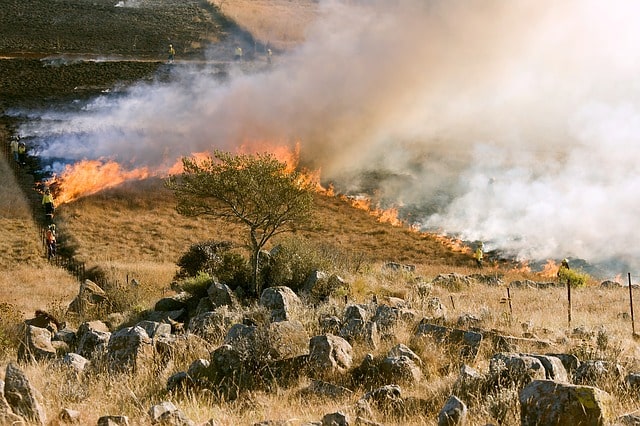
Representational Pic
Chandigarh (IANS): When Punjab Chief Minister Amarinder Singh flew over Punjab and Haryana last week, he admitted he saw agriculture fields emitting plumes of smoke at several places -- meaning that stubble-burning of the harvested paddy crop was taking place with impunity in both agrarian states despite official strictures.
Despite threats of action -- including registration of legal cases -- as well as incentives in the form of subsidies for machines and equipment and awareness campaigns, farmers in north India continue to go in for the "quicker" option of getting rid of the crop residue to get their fields ready for the next crop.
The residue burning chokes the whole of north India during the winter months (November to January) with heavy smog (smoke+fog) over the region. National capital Delhi and nearby areas are the worst affected by the smog.
"We have westerly winds in this part (of the region) coming from Afghanistan and blowing towards Punjab and Delhi. That is why this (smog) problem arises in Delhi," Amarinder Singh said.
Paddy is grown over 65 lakh acres in Punjab. After harvesting, over 20 million tonnes of paddy, straw is left in the fields to be managed by farmers before sowing the next rabi crops (wheat and others). It is estimated that 15 million tonnes of paddy straw is burnt by farmers for early and easy clearance of the fields.
Punjab alone contributes 65 percent of the total residue produced by the northwestern states.
The claims of the Punjab and Haryana governments notwithstanding, stubble-burning continues to be a ground reality as farmers say that they don't have alternative ways of getting rid of the crop residue.
In "Green Revolution" state of Punjab, which is targetting a bumper paddy procurement of 200 lakh tonnes this season (October 1 to November 30), there are over 17.5 lakh farming families. Over 10 lakh (one million) of them have land holdings of two to five acres and cannot afford to go in for mechanised farming. With the paddy harvesting season starting and the fear of environment pollution looming large due to stubble-burning by farmers, the Punjab government has decided to appoint nodal officers in 8,000 paddy growing villages in a move to check the menace.
(Story by Jaideep Sarin)
.